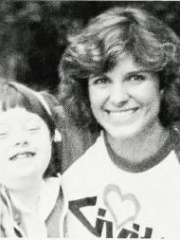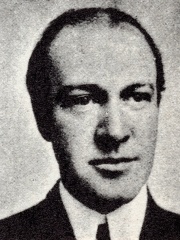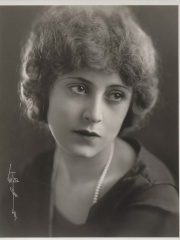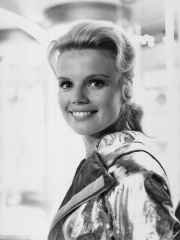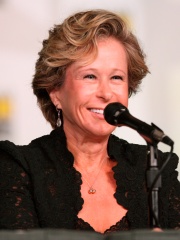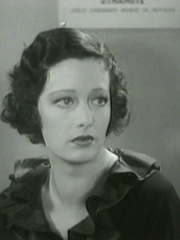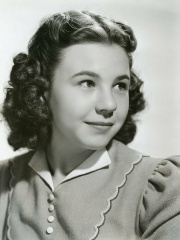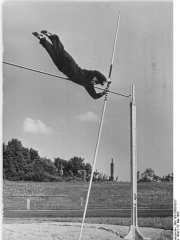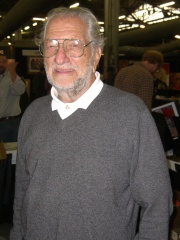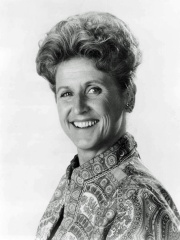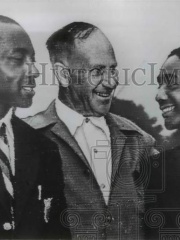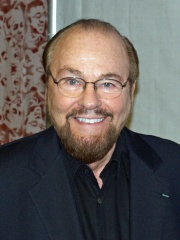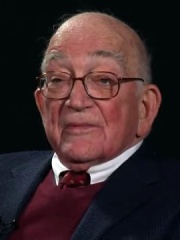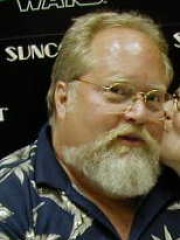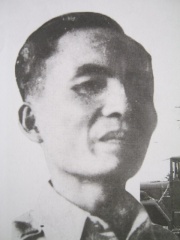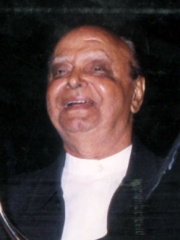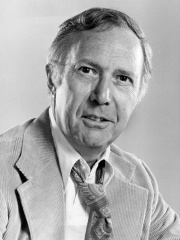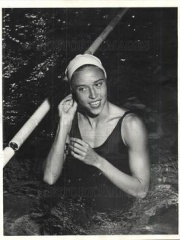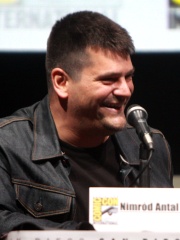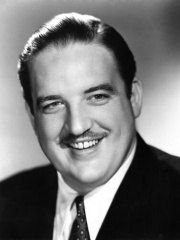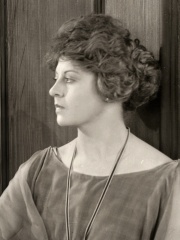Acteur
June Haver
1926 - 2005
NL.WIKIPEDIA PAGE VIEWS (PV)
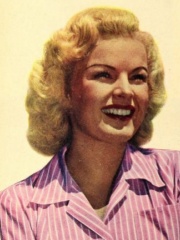
 June Haver
June Haver
Haar biografie is beschikbaar in 21 verschillende talen op Wikipedia. June Haver staat op plaats 8.588 onder de meest populaire acteur (gedaald van plaats 7.642 in 2024), plaats 13.084 onder de meest populaire biografieën uit Verenigde Staten (gedaald van plaats 11.262 in 2019) en op plaats 3.987 onder de populairste acteur uit Verenigde Staten.
Memorability Metrics
Page views of June Haver by language
Among Acteurs
Among acteurs, June Haver ranks 8,588 out of 13,578. Before her are Rick Yune, Will Kemp, Jack Quaid, Susan Saint James, Colin O'Donoghue, and Harry Solter. After her are Virginia Brown Faire, Marta Kristen, Marine Vacth, Brian Hallisay, Yeardley Smith, and Polly Ann Young.
Most Popular Acteurs in Wikipedia
Go to all RankingsRick Yune
1971 - Present
HPI: 49.34
Rank: 8,584
Will Kemp
1977 - Present
HPI: 49.34
Rank: 8,585
Jack Quaid
1992 - Present
HPI: 49.34
Rank: 8,586
Susan Saint James
1946 - Present
HPI: 49.34
Rank: 8,587
Colin O'Donoghue
1981 - Present
HPI: 49.34
Rank: 8,588
Harry Solter
1873 - 1920
HPI: 49.34
Rank: 8,589
June Haver
1926 - 2005
HPI: 49.34
Rank: 8,590
Virginia Brown Faire
1904 - 1980
HPI: 49.34
Rank: 8,591
Marta Kristen
1944 - Present
HPI: 49.34
Rank: 8,592
Marine Vacth
1991 - Present
HPI: 49.33
Rank: 8,593
Brian Hallisay
1978 - Present
HPI: 49.33
Rank: 8,594
Yeardley Smith
1964 - Present
HPI: 49.33
Rank: 8,595
Polly Ann Young
1908 - 1997
HPI: 49.33
Rank: 8,596
Contemporaries
Among people born in 1926, June Haver ranks 540. Before her are Rusty Wailes, Jane Withers, Torfi Bryngeirsson, Joe Kubert, Ann B. Davis, and Lorenzo Wright. After her are James Lipton, Audrey Patterson, Paul Meister, Sidney Drell, Dennis Wilshaw, and Chuck Arnold. Among people deceased in 2005, June Haver ranks 356. Before her are Bill McGarry, Samir Kassir, William Hootkins, Michael Park, Luis Taruc, and Ted Ditchburn. After her are Constance Cummings, Bob Denver, Ramanand Sagar, Wayne C. Booth, Mason Adams, and Shelley Mann.
Others Born in 1926
Go to all RankingsRusty Wailes
ATHLETE
1926 - 2002
HPI: 49.57
Rank: 534
Jane Withers
ACTOR
1926 - 2021
HPI: 49.56
Rank: 535
Torfi Bryngeirsson
ATHLETE
1926 - 1995
HPI: 49.51
Rank: 536
Joe Kubert
COMIC ARTIST
1926 - 2012
HPI: 49.50
Rank: 537
Ann B. Davis
ACTOR
1926 - 2014
HPI: 49.47
Rank: 538
Lorenzo Wright
ATHLETE
1926 - 1972
HPI: 49.39
Rank: 539
June Haver
ACTOR
1926 - 2005
HPI: 49.34
Rank: 540
James Lipton
WRITER
1926 - 2020
HPI: 49.31
Rank: 541
Audrey Patterson
POLITICIAN
1926 - 1996
HPI: 49.01
Rank: 542
Paul Meister
ATHLETE
1926 - 2018
HPI: 48.90
Rank: 543
Sidney Drell
PHYSICIST
1926 - 2016
HPI: 48.87
Rank: 544
Dennis Wilshaw
SOCCER PLAYER
1926 - 2004
HPI: 48.63
Rank: 545
Chuck Arnold
RACING DRIVER
1926 - 1997
HPI: 48.61
Rank: 546
Others Deceased in 2005
Go to all RankingsBill McGarry
SOCCER PLAYER
1927 - 2005
HPI: 49.82
Rank: 350
Samir Kassir
JOURNALIST
1960 - 2005
HPI: 49.78
Rank: 351
William Hootkins
ACTOR
1948 - 2005
HPI: 49.57
Rank: 352
Michael Park
RACING DRIVER
1966 - 2005
HPI: 49.39
Rank: 353
Luis Taruc
SOCIAL ACTIVIST
1913 - 2005
HPI: 49.35
Rank: 354
Ted Ditchburn
SOCCER PLAYER
1921 - 2005
HPI: 49.35
Rank: 355
June Haver
ACTOR
1926 - 2005
HPI: 49.34
Rank: 356
Constance Cummings
ACTOR
1910 - 2005
HPI: 49.24
Rank: 357
Bob Denver
ACTOR
1935 - 2005
HPI: 49.16
Rank: 358
Ramanand Sagar
FILM DIRECTOR
1917 - 2005
HPI: 49.09
Rank: 359
Wayne C. Booth
WRITER
1921 - 2005
HPI: 48.83
Rank: 360
Mason Adams
ACTOR
1919 - 2005
HPI: 48.66
Rank: 361
Shelley Mann
SWIMMER
1937 - 2005
HPI: 48.61
Rank: 362
In Verenigde Staten
Among people born in Verenigde Staten, June Haver ranks 13,088 out of NaN. Before her are Rick Yune (1971), Jack Quaid (1992), Veronica Roth (1988), Gallagher (1946), Susan Saint James (1946), and Harry Solter (1873). After her are Virginia Brown Faire (1904), Nimród Antal (1973), Kenneth Cockrell (1950), Brian Hallisay (1978), Stephen Rerych (1946), and Polly Ann Young (1908).
Others born in Verenigde Staten
Go to all RankingsRick Yune
ACTOR
1971 - Present
HPI: 49.34
Rank: 13,082
Jack Quaid
ACTOR
1992 - Present
HPI: 49.34
Rank: 13,083
Veronica Roth
WRITER
1988 - Present
HPI: 49.34
Rank: 13,084
Gallagher
COMEDIAN
1946 - 2022
HPI: 49.34
Rank: 13,085
Susan Saint James
ACTOR
1946 - Present
HPI: 49.34
Rank: 13,086
Harry Solter
ACTOR
1873 - 1920
HPI: 49.34
Rank: 13,087
June Haver
ACTOR
1926 - 2005
HPI: 49.34
Rank: 13,088
Virginia Brown Faire
ACTOR
1904 - 1980
HPI: 49.34
Rank: 13,089
Nimród Antal
FILM DIRECTOR
1973 - Present
HPI: 49.34
Rank: 13,090
Kenneth Cockrell
ASTRONAUT
1950 - Present
HPI: 49.33
Rank: 13,091
Brian Hallisay
ACTOR
1978 - Present
HPI: 49.33
Rank: 13,092
Stephen Rerych
SWIMMER
1946 - Present
HPI: 49.33
Rank: 13,093
Polly Ann Young
ACTOR
1908 - 1997
HPI: 49.33
Rank: 13,094
Among Acteurs In Verenigde Staten
Among acteurs born in Verenigde Staten, June Haver ranks 3,989. Before her are Eric Allan Kramer (1962), Brian Stepanek (1971), Rick Yune (1971), Jack Quaid (1992), Susan Saint James (1946), and Harry Solter (1873). After her are Virginia Brown Faire (1904), Brian Hallisay (1978), Polly Ann Young (1908), Laird Cregar (1913), Gertrude Astor (1887), and Constance Money (1956).
Eric Allan Kramer
1962 - Present
HPI: 49.35
Rank: 3,983
Brian Stepanek
1971 - Present
HPI: 49.34
Rank: 3,984
Rick Yune
1971 - Present
HPI: 49.34
Rank: 3,985
Jack Quaid
1992 - Present
HPI: 49.34
Rank: 3,986
Susan Saint James
1946 - Present
HPI: 49.34
Rank: 3,987
Harry Solter
1873 - 1920
HPI: 49.34
Rank: 3,988
June Haver
1926 - 2005
HPI: 49.34
Rank: 3,989
Virginia Brown Faire
1904 - 1980
HPI: 49.34
Rank: 3,990
Brian Hallisay
1978 - Present
HPI: 49.33
Rank: 3,991
Polly Ann Young
1908 - 1997
HPI: 49.33
Rank: 3,992
Laird Cregar
1913 - 1944
HPI: 49.32
Rank: 3,993
Gertrude Astor
1887 - 1977
HPI: 49.32
Rank: 3,994
Constance Money
1956 - Present
HPI: 49.31
Rank: 3,995



